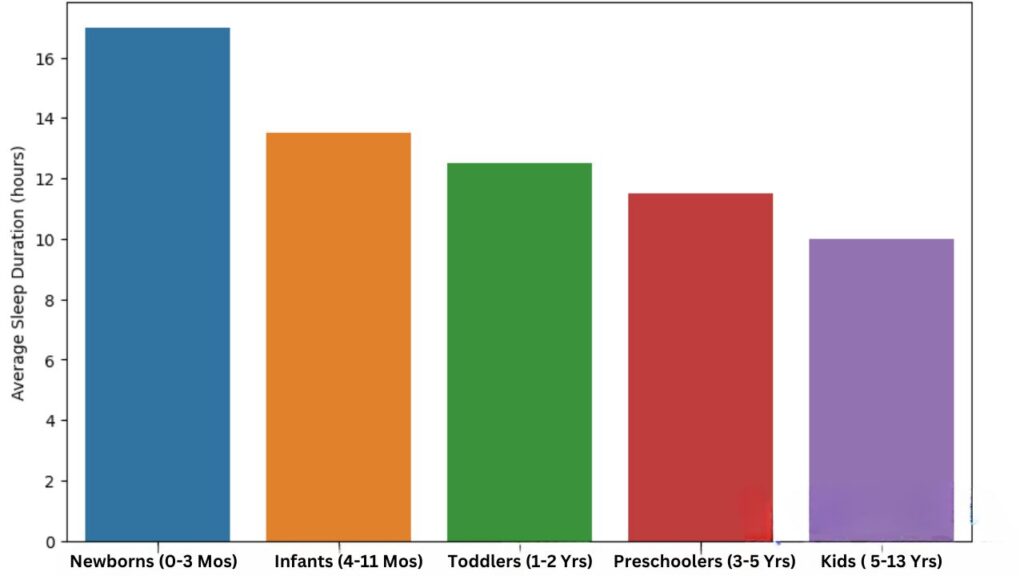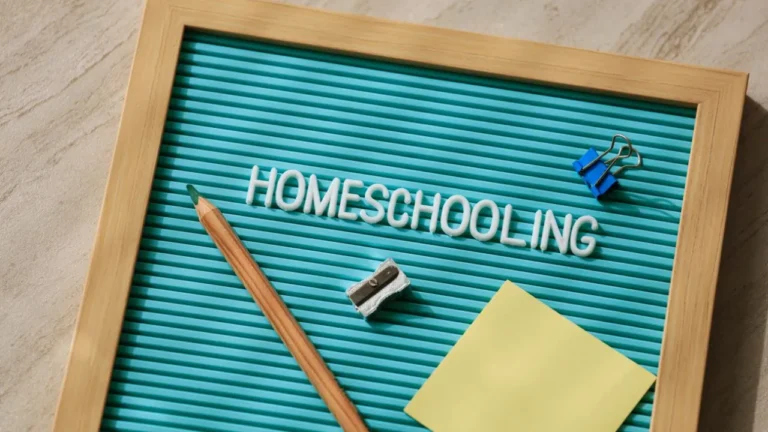Valuing Success: Proven Strategies to Help Your Kids Succeed in School!

As a parent, one of your primary responsibilities is to guide your children to academic success. It’s a journey that can be both exciting and daunting at the same time.
Fortunately, there are many strategies you can use to help your kids succeed in school. One of the essential things you can do is to instill positive expectations in your children.
Many students who believe they will do well academically tend to perform better than those with negative beliefs about their abilities. You can encourage a growth mindset by reminding them that everyone has the potential for improvement.
Crafting a consistent homework schedule can also contribute significantly to helping your kids succeed in school. A planner for assignments and homework contracts may help keep them on track and ease anxiety over upcoming tasks.
The routine is an excellent opportunity for fostering independence, organizational skills, and self-advocacy. Sleep hours for school-aged children are crucial since poor sleep quality or insufficient sleep negatively affects student achievement and behavior in class.
Children need about 9-11 hours of sleep each night, but school-aged children often have difficulty maintaining a regular sleep schedule due to screen time or social-emotional issues. Building bridges with your child’s educators is another crucial step toward helping them succeed in their studies.
In addition, teachers must communicate with parents concerning learning differences or other issues affecting their students’ ability to learn effectively at home during independent reading times.
Ultimately, successful children require parental involvement as well as individual efforts from the children themselves; this includes allowing room for learning through errors while promoting confidence and cultivating self-reliance and self-expression around academic pursuits and problem-solving-oriented approaches toward educational challenges.
Instilling Optimistic Expectations
It’s no secret that parenting a student is a challenging endeavor, especially regarding academic success. As parents, we all want our children to succeed in school and achieve the best possible outcomes.
However, it’s essential not to overburden our children with unrealistic expectations that can lead them to feel like they are constantly falling short.
Instead, instilling optimistic expectations is crucial for their success. One of the ways parents can foster positive expectations is by being involved and present in their child’s academic endeavors.
By establishing a clear line of communication with teachers and educators, you can remain informed about your child’s progress while also gaining insight into any potential learning differences or social-emotional issues that may be impacting their performance. Understanding your child’s learning style is crucial in setting realistic goals that match their capabilities.
Another critical aspect of instilling positive expectations is promoting self-advocacy and fostering independence. This can include creating a homework contract that outlines clear expectations regarding homework completion or helping your child develop organizational skills for better time management.
It’s also important to emphasize solution-oriented approaches over direct assistance with homework so that your child learns how to solve problems on their own. Healthy sleep habits are essential for any student looking to succeed in school.
By prioritizing enough sleep each night, you can ensure that your child has the energy they need to engage actively in class and complete assignments effectively. Having a consistent routine around bedtime will help establish good habits early on while minimizing stress around bedtime.
By incorporating these strategies into your parenting approach, you’ll be able to promote healthy student achievement while allowing room for growth and independence. Fostering positive expectations will set your child up for success both inside and outside of the classroom.

Crafting a Consistent Homework Schedule
Crafting a Consistent Homework Schedule Homework is an essential aspect of student achievement, and it plays a significant role in the development of good habits.
By establishing a consistent homework routine, parents can help their children develop organizational skills and promote time management. Children who are unable to complete their homework or are inconsistent in their approach may experience academic stress or find themselves struggling to keep up with the expectations placed upon them.
One approach parents can take is to create a homework contract that outlines specific expectations for completing assignments, such as designated times, locations for working, and the responsibilities of both the child and parent.
This contract helps establish clear boundaries that will foster independence in your child by giving them responsibility for remembering tasks and meeting stated expectations.
Another strategy involves setting aside time each day for independent reading or other learning activities unrelated to schoolwork. This helps foster a love of learning by promoting curiosity and exploration outside the classroom environment.
Parents should also work closely with their child’s teachers through open communication channels about the demands of homework, learning differences that may affect how children approach assignments or any difficulties they encounter when completing them.
Teachers’ insights allow parents to provide direct assistance with homework completion if necessary while still fostering independence in children.
Creating a consistent homework schedule is an excellent way for parents to help kids succeed in school by providing the structure and support necessary for academic success. Fostering independence while encouraging good habits such as time management and organizational skills through parental involvement will ensure that students achieve their full potential regardless of their learning style or pace.
Building Bridges with Your Child’s Educators
Effective communication between parents and teachers is an essential component of a child’s academic success. Establishing and maintaining open communication channels with your child’s educators will help you stay on top of your child’s progress, identify areas where they need extra support, and ensure that everyone involved is working towards common goals.
Parental involvement in schools is critical to student achievement. Parent-teacher conferences are an excellent opportunity to meet with your child’s teachers, discuss their progress, voice concerns, and set school-year goals.
You can also ask teachers about any social-emotional issues that may impact your child’s learning or behavior in the classroom. As important as it is to communicate with your child’s teacher(s), it is equally important to communicate regularly throughout the school year.
Teachers will appreciate receiving regular updates about how their students are doing outside of class time – this could include homework completion rates, good habits you observe at home (such as reading for pleasure), or screen time before bedtime restrictions you may have implemented.
By establishing a relationship with teachers based on respect and transparency you can work together to create a supportive environment for your child’s learning journey.
Promoting Beneficial Sleep Routines
It’s no surprise that getting enough sleep is critical to our health and daily performance. However, many parents don’t realize the implications of their child’s sleep routine on their academic success.
According to the National Sleep Foundation, children ages 6-13 need 9-11 hours of sleep each night, while teenagers need about 8-10 hours. By ensuring your child gets enough restful sleep each night, you can help them stay alert and focused throughout their day.
One way to encourage better sleeping habits is by setting a consistent bedtime that allows for ample hours of rest. To promote relaxation before bedtime, consider limiting screen time before bed as well as incorporating calming activities like reading or yoga into your child’s nightly routine.
Additionally, creating a comfortable and peaceful sleeping environment can positively impact your child’s ability to fall asleep quickly and stay asleep throughout the night. If your child has difficulties falling or staying asleep despite these efforts, it may be helpful to consult with a healthcare provider.
Addressing any underlying medical issues such as sleep apnea or restless leg syndrome can greatly improve not only your child’s sleeping habits but also their overall academic performance.
Ultimately, by prioritizing beneficial sleep routines for your child, you are setting them up for success in all areas of life – from academic endeavors to social-emotional issues – by fostering independence and maximizing their potential through optimal rest and rejuvenation each night.
Determining the Ideal Amount of Sleep
It can be challenging to determine the ideal amount of sleep for school-aged children. While the National Sleep Foundation recommends that children aged 6-13 get 9-11 hours of sleep per night, individual differences and factors such as screen time before bedtime, social-emotional issues, and academic stress can impact the amount of sleep needed.
To help determine the appropriate amount of sleep for your child, it is essential to consider their learning style and school year goals.
For instance, if your child struggles with attention and focus in class, they may require more sleep to feel rested and alert during school hours. Alternatively, if your child is a high achiever with ambitious academic goals for the year, they may need more time to study or complete assignments in addition to getting sufficient rest.
It’s also important to create a consistent routine around bedtime and wake-up time to ensure that your child’s body knows when it’s time to prepare for rest or activity. Maintaining a consistent schedule can help regulate sleep patterns and promote better overall health.
Consider using solution-focused communication techniques when discussing bedtimes and wake-up times with your child by encouraging them to come up with solutions that work for both them and the family. In some cases, direct assistance with homework or developing a planner for assignments can help reduce late-night studying sessions that can cut into much-needed rest periods.

However, while it’s essential to create an environment where homework completion is encouraged, parents should avoid creating an overly demanding Homework Contract that may impede their child’s love of learning or self-advocacy skills. Ultimately, promoting healthy sleeping habits while respecting individual differences is key to helping your children perform academically while also taking care of their physical well-being.
Balancing Between Assisting and Impeding
When it comes to helping your children succeed in school, it’s essential to find the right balance between assisting and impeding their academic endeavors. While some parents may feel compelled to micromanage their child’s every move when it comes to homework and studying, others may take a more hands-off approach, leaving their children to fend for themselves.
Finding the sweet spot between these two extremes can be tricky but is crucial for helping kids succeed in school. One way to balance assisting and impeding your child is by fostering independence and self-advocacy.
While parents need to be involved in their child’s education, it’s equally essential that children learn how to take responsibility for their academic success. Teach them good habits like using a planner for assignments or practicing independent reading outside of class.
Encourage your child to ask questions in class when they need clarification on a topic, rather than relying solely on you or the teacher. Another way parents can avoid impeding their child’s academic progress is by communicating effectively with teachers.
Teachers are valuable allies when it comes to ensuring student achievement, so parents must establish a good relationship with them early on. If your child is struggling with a particular subject or assignment, consider reaching out to the teacher directly for guidance.
Parents should provide direct assistance with homework only when necessary and appropriate. Homework supplies like pencils and paper should be readily available at home, but resist the urge to do your child’s work for them or become too involved in projects or assignments.
Instead, focus on solution-focused communication by asking open-ended questions about what your child needs help with rather than jumping in with solutions before they’ve had a chance to express themselves. Balancing between assisting and impeding your child can be challenging but is necessary for helping kids succeed in school.
By fostering independence and self-advocacy skills within your children while maintaining open communication with teachers and providing appropriate homework assistance, you can help your child achieve their school year goals. Remember, positive expectations and healthy sleep habits are also key factors in helping kids succeed academically.
Encouraging Confidence in Your Child
As parents, we want to help our children succeed in all aspects of life, including academics.
However, one of the most vital things we can do as parents is to encourage confidence in our children. A confident child is more likely to take risks and believe in their abilities, which leads them to succeed academically.
One way to build confidence is by praising your child’s effort rather than just the outcome. Children who receive compliments for their efforts are motivated to work harder and feel a sense of accomplishment even when they don’t get it right the first time.
For instance, if your child receives a low grade on a test but studies hard and tries their best, praise their effort and remind them that they will do better next time. Another way to build confidence is by recognizing your child’s strengths and interests.
When you encourage your children’s interests outside of school, you’re helping them develop self-confidence while also fostering independence and self-reliance. For instance, if your child loves playing sports or music, show support by attending events or helping them practice.
Allow room for mistakes! Making mistakes is a crucial part of learning; it helps develop resilience and problem-solving skills.
Encourage your child not to give up when faced with challenges but instead use failures as an opportunity for growth. With such encouragement from parents, kids are sure to gain confidence in themselves and become successful academically!
Allowing Room for Learning Through Errors
Making mistakes is an integral part of the learning process. As a parent, it is essential to provide your child with opportunities to experiment and make errors without fear of reproach. will foster their critical thinking skills and boost their confidence in their abilities.
However, it’s important to note that there’s a fine line between facilitating these growth opportunities and enabling irresponsible behavior. Parental involvement in school activities can go a long way in creating an environment where learning through mistakes is encouraged.
For instance, encouraging your child to participate in after-school clubs or activities like debate teams or sports can teach them vital life lessons like teamwork, problem-solving, decision-making, and critical thinking without the pressure of grades. Organizational skills are another valuable tool that parents can use to help children learn from their mistakes while keeping track of assignments and homework.
A planner for assignments or a homework contract outlining expectations for homework completion time management will allow students to monitor themselves while providing structure and accountability. More importantly, parents should encourage independent reading as a way of building tolerance for making mistakes without facing harsh criticism.
Students who read regularly develop better writing skills and cognitive function which helps them understand complex topics better. Allowing room for learning through errors is essential for kids‘ success in school.
It’s key to employ good habits like keeping away from screen time before bedtime, instilling self-advocacy skills among children through communication with teachers, as well as practicing social-emotional issues like empathy towards others’ feelings.
Providing children with an environment where they feel safe enough to make mistakes without criticism or fear of failure builds up the confidence needed for academic success.

Cultivating Self-reliance and Self-expression
Parents who want their kids to succeed in school should also foster independence in their children. Kids must learn how to do things for themselves if they want to be successful in the classroom.
Children need to learn how to be self-reliant, and parents should encourage it by gradually relinquishing control over school-related tasks. Kids should feel empowered and confident that they can take care of themselves, which will give them a head start in academic endeavors.
Fostering independence is not only about taking care of yourself but also about expressing your thoughts and feelings. Parents must encourage their children’s self-expression because it is essential for healthy social-emotional development and academic success.
Learning to communicate effectively will help children resolve conflicts with their peers, teachers, and parents more efficiently – as well as assertively communicate with them about their needs. By encouraging self-expression at home, parents teach kids how to be more comfortable speaking up in the classroom setting.
When promoting self-reliance and self-expression, parents should consider each child’s learning style because different students have different ways of processing information. Parents can help their kids discover what works best for them by encouraging independent reading or other activities that allow them to explore new ideas on their own time without fear of judgment or ridicule.
Parents can support this process by providing books or materials tailored to each child’s interests. Ultimately, fostering independence requires patience and commitment from both parents and children alike – but it is worth investing the time now so that kids can develop into confident adults who are equipped with the skills necessary for success both inside and outside of the classroom!
Emphasizing Solution-Oriented Approaches
One of the most important things parents can do to help their children succeed in school is to emphasize solution-oriented approaches. This means that instead of focusing on problems and faults, it’s crucial to help children find ways to improve and make progress. By teaching kids to be proactive problem-solvers, parents can set them on a path toward academic success.
One way to promote solution-focused communication is by using positive language and framing issues as opportunities for growth. For example, instead of criticizing a poor grade, encourage your child to think about what they could do differently next time.
Help them identify specific steps they can take to improve their performance. This kind of dialogue encourages self-advocacy and teaches kids to take responsibility for their learning.
Another key aspect of solution-oriented approaches is fostering independence in students. Children need to learn how to manage their time effectively, organize their assignments, and structure their homework routines.
Parents can help by providing tools like planners or contracts for homework completion, but ultimately it’s up to the child to take ownership of their academic endeavors. By encouraging a love of learning and providing support rather than doing everything for them, parents are helping prepare students for success not just in school but in life as well.
Conclusion
Helping your kids succeed in school requires a lot of effort, dedication, and patience.
It is important to instill optimistic expectations in your children from a young age and cultivate their confidence by allowing room for learning through errors. Encouraging self-reliance and self-expression in your children is also essential to promote their love of learning.
Time management is crucial when it comes to academic endeavors. Crafting a consistent homework schedule will help your kids develop good habits that will benefit them throughout their academic careers.
Additionally, fostering independence in your kids’ learning style will go a long way in promoting positive student achievement. Parent-teacher communication plays a big role in ensuring that your child’s needs are met while at school.
Building bridges with educators can help you understand how best to support your children’s learning differences while reducing the academic stress they may experience.
By taking direct assistance with homework seriously while promoting healthy sleep habits and ensuring that homework supplies are readily available, you can be sure that you are doing everything within your power as a parent to set up your children for success.
In the end, the key thing is creating an environment where learning is fun and exciting for our kids by emphasizing solution-oriented approaches instead of dwelling on failures.
Whether you’re simply starting or have been parenting for years now, always remember that parental involvement and positive expectations play an important role in helping our children thrive academically and emotionally.







